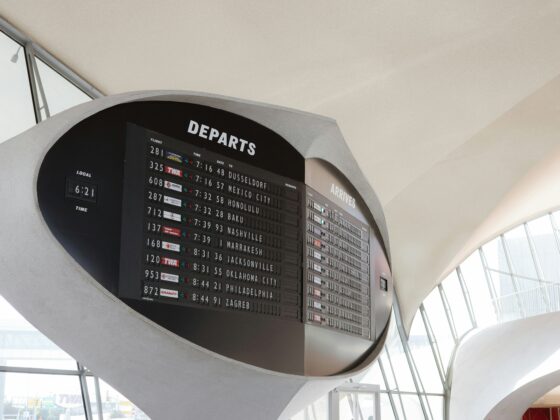
Ask anyone in the hospitality or service industry if they invest in employee training, and they’ll likely share details about robust, content-focused orientation programs that focus on services and procedures. While these programs may cover essential knowledge and company policies, they rarely prepare employees for the unpredictable, fast-paced nature of real-world customer interactions.
As AI continues to reshape industries, hospitality stands to gain significantly in areas like customer experience and employee training. AI is not just optimizing operations, it’s redefining how frontline teams deliver personalized service under pressure.
As a result, when employees face common service scenarios, like handling a phone reservation, managing a last-minute event booking, or responding to guest concerns, they often fall short of delivering the high-level service that is core to their organization’s brand. The skills and knowledge shared in early sessions simply don’t stick, especially in an industry known for high turnover and limited opportunities for real-world practice.
Frontline teams are increasingly navigating growing customer expectations, evolving technologies, and constant operational challenges, all while receiving less training time than ever before. According to a recent report from the Council of Hotel and Restaurant Trainers (CHART), ongoing training for hourly hospitality employees has dropped to just one hour per month. For managers and operators, this raises a critical question: How can we make every minute of training count, and do so in a cost-conscious way?
The Problem with Current Training Programs
Traditional hospitality training programs often fall short because they treat training as a one-time event rather than an ongoing process designed to build confidence, competence, and loyalty over time. In an industry where turnover is notoriously high, this outdated approach contributes directly to the cycle of constant hiring and underprepared staff.
These programs also rarely account for the individualized, adaptive learning that today’s frontline employees need to succeed. Each team member arrives with different levels of experience, communication styles, and learning speeds, yet most training remains static and one-size-fits-all. For example, a standard classroom-style onboarding session may deliver a script for handling guest check-ins or phone reservations, but it doesn’t adjust in real time to an employee’s skill gaps or simulate the pressure of a real interaction. As a result, employees may leave training with surface-level knowledge but without the confidence or preparedness to apply it under stress.
When training is limited or insufficient, new employees are often placed in critical guest-facing roles without the skills or knowledge needed to succeed. This not only increases mistakes and workplace stress but also impacts guest satisfaction, as employees struggle to answer questions, handle problems, or deliver consistent service. As a result of experiencing these shortcomings in real time, guests often perceive the brand as disorganized or inattentive, leading to negative reviews, reduced loyalty, and lost revenue opportunities. Over time, this erodes trust and makes it more difficult for properties to maintain a competitive edge in a service-driven market.
Traditional programs frequently overlook the long-term benefits of continuous learning. When employees don’t feel supported or see opportunities for growth, morale drops and engagement wanes, leading to even higher turnover. Organizations that make strategic investments in training and growth opportunities report 11% greater profitability and are twice as likely to retain their employees. Proper, ongoing training creates a culture where employees feel valued, motivated, and equipped to provide exceptional service.
How AI Can Maximize Training Windows
AI-powered training platforms are redefining how hospitality teams prepare for high-stakes guest interactions. These tools don’t just scale training, they simulate the real-world complexities of frontline service, offering staff a safe space to practice, fail, and improve. From managing last-minute booking changes to resolving billing disputes or responding to demanding guests, AI-driven simulations can replicate a wide range of scenarios, both routine and challenging.
By incorporating realistic, voice-based conversations, AI training enables staff to practice communicating with empathy, clarity, and speed – skills critical to delivering exceptional service over the phone as well as in person. These simulations bring the long-sought goal of tailored guest interaction into the training room, allowing staff to rehearse and refine responses that are aligned with brand standards and guest expectations.
The results speak for themselves. Roughly 72% of hospitality learning and development professionals report that AI improves work quality. Teams that embrace these tools are not only learning faster but also retaining knowledge more effectively, completing projects up to four times faster than those using traditional methods.
Beyond individual development, AI simulations help standardize training quality across locations, ensuring consistency in guest experience regardless of geography or tenure. Real- time feedback loops enable employees to learn from their mistakes and build muscle memory through repetition. At the same time, AI quality assurance can help identify recurring service challenges and proactively adjust training content to address them to close performance gaps before they impact guests.
In a competitive hospitality market, companies that adopt AI for staff development gain a significant edge in operational efficiency, guest satisfaction, and brand loyalty. For hospitality leaders seeking to maximize every minute of shrinking training windows, AI offers a scalable, cost-effective, and high-impact solution. By investing in AI-driven training solutions, organizations can empower their teams with the skills and confidence they need to deliver memorable guest experiences every shift, every call, every time.
About the Author
Sam Dorison is the Cofounder and CEO of ReflexAI, where he leads efforts to bring cutting-edge AI solutions to front-line workers. His work focuses on helping organizations improve service quality, training, and operational efficiency — without losing the human touch. Prior to ReflexAI, Sam served as Chief Strategy & Innovation Officer at The Trevor Project.
Sam began his career at McKinsey & Company and has advised leaders across the public and private sectors. He holds degrees from Princeton (summa cum laude), Cambridge, and University College London, where he was a Marshall Scholar.









